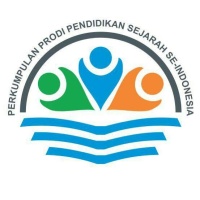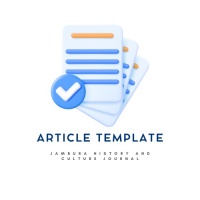- Focus and Scope
- Section Policies
- Peer Review Process
- Publication Frequency
- Open Access Policy
- Archiving
- Copyright Transfer Form
- Plagiarism Screening
Focus and Scope
Jambura History and Culture Journal (JHCJ) is published by Department of History Faculty of Social Science, Gorontalo State University, it is published twice a year in January and July. JHCJ covers all areas and periode in Indonesian history, history education it deals with all aspects of the history including of economic, social, culture, and politics. All historical and culture approaches are also welcomed. This journal accept on diverse format includes article from scientific forums, review essays, and special issues. The editor also received a book review to be published in a special section of publication. The articles can be written to be submitted in Indonesia and English.
Section Policies
Articles
Peer Review Process
Jambura History and Culture Journal (JHCJ) publishes articles following JHCJ guidelines and templates. A pre-review of the manuscript was conducted by an editorial team to review the suitability of the text with the focus and scope and style of the journal and JHCJ writing guidelines. All manuscripts sent will go through a double-blind review process. Manuscripts will be sent to a minimum of two reviewers based on their field of specialization. Reviewers provide script assessments that include originality, scientific contributions, and presentation clarity. Based on the comments and suggestions from the editorial board reviewer made a decision on the reviewer's comments and suggestions. JHCJ has four types of decisions including accepted, accepted by minor revisions, accepted by major revisions, and rejected. Plagiarism examination is performed using Turnitin.
Publication Frequency
Jambura History and Culture Journal (JHCJ) is a journal published by Faculty of Social Science, Gorontalo State University two times a year in Januari and Juli.
Open Access Policy
This journal provides immediate open access to its content on the principle that making research freely available to the public supports a greater global exchange of knowledge.
Archiving
This journal utilizes the LOCKSS system to create a distributed archiving system among participating libraries and permits those libraries to create permanent archives of the journal for purposes of preservation and restoration. More...
Copyright Transfer Form
RIGHTS OF AUTHORS
Jambura History and Culture (JHCJ) recognize the retention of the following:
1. Patent and trademark rights and rights to any process or procedure described in the article.
2. The right to photocopy or make single electronic copies of the article for their own personal use, including for their own classroom use, or for the personal use of colleagues, provided the copies are not offered for sale and are not distributed in a systematic way outside of their employing institution (e.g. via an e-mail list or public file server). Posting of an article on a secure network (not accessible to the public) within the author’s institution is permitted.
3. The right, subsequent to publication, to use the article or any part thereof free of charge in a printed compilation of works of their own, such as collected writings or lecture notes.
Note: All copies, paper, electronic or other use, of the information must include an indication of Jambura History and Culture Journal (JHCJ) and Faculty of Social Science Gorontalo State University and a full citation of the journal source. Please refer requests for reprints to the corresponding author, and requests for all other uses not covered above, including the authorization of third parties to reproduce or otherwise use all or part of the article (including figures and tables) to: Jambura History and Culture Journal (JHCJ).
AUTHORSHIP
1. If the article was prepared jointly with other author(s), the signing author has informed the co-author(s) of the terms of this copyright transfer and is signing on their behalf as their agent and represents that he or she is authorized to do so, then please confirm by checking the appropriate box following the signature line. The signing author shall bear the responsibility for designating the co-author(s) and must inform Jambura History and Culture Journal (JHCJ) of any changes in authorship.
2. If copyright is held by the employer, then the employer or an authorized representative of the employer must sign. If the author signs, it is understood that this is with the authorization of the employer and the employer’s acceptance of the terms of the transfer. Please confirm by checking the appropriate box following the signature line.
The copyright form should be signed originally and sent to the editorial office in the form of original mail, electronic mail, scanned document to: [email protected]
Plagiarism Screening
All manuscripts submitted to Jambura History and Culture Journal are subject to plagiarism screening using Turnitin plagiarism detection software. This process is conducted to ensure the originality of the submitted work and to uphold the academic integrity of the journal. The editorial team strictly prohibits all forms of plagiarism, including direct copying without citation, improper paraphrasing, self-plagiarism, and redundant publication. Manuscripts with a similarity index above 20% excluding references and properly cited quotations will be returned to the author for revision or rejected, depending on the severity of the case. By submitting a manuscript, authors agree to have their work checked for originality through Turnitin as part of the standard editorial process.












